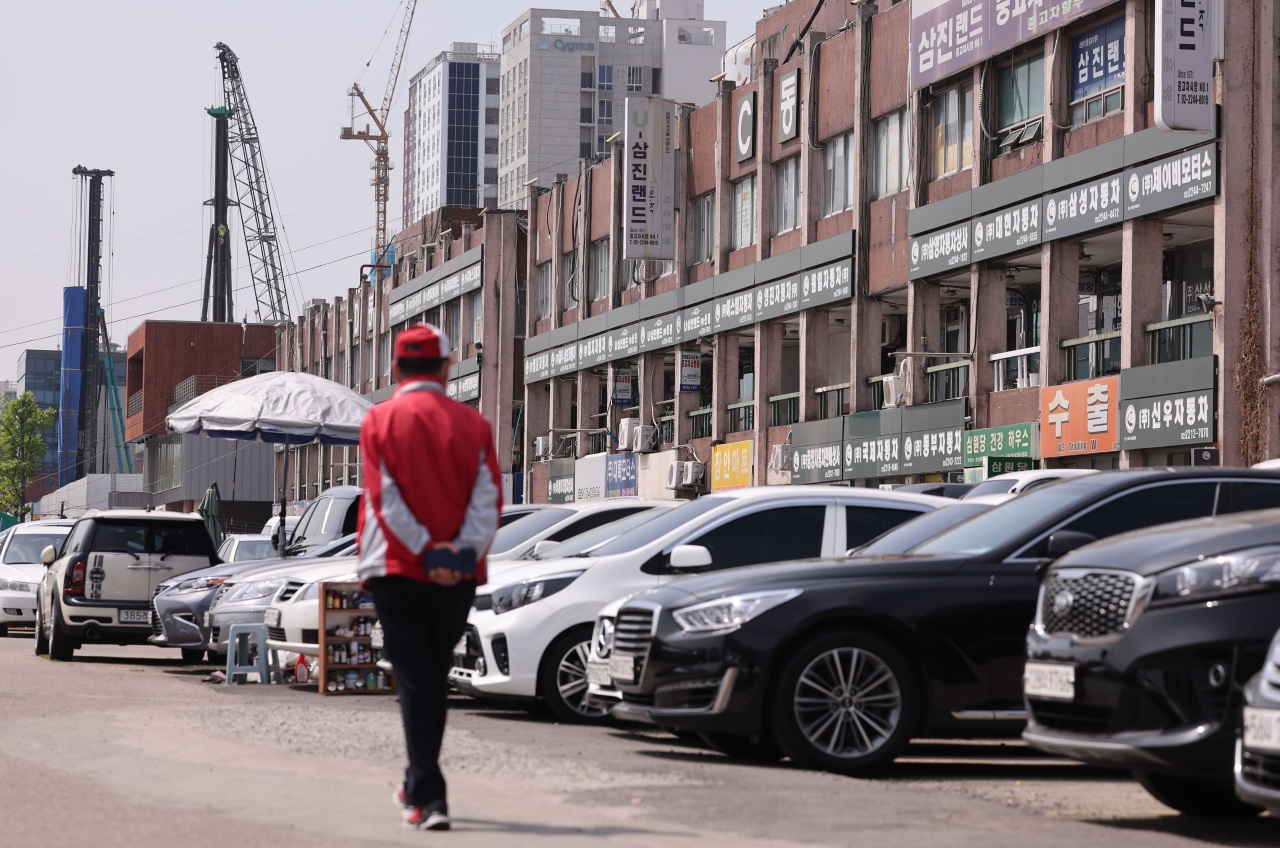South Korea’s used car market, which has long been dominated by brick-and-mortar dealers, is bracing for a major change after large companies, especially carmakers with extensive sales networks and quality control systems, have gotten the green light to enter the market starting next year.
Industry watchers are pinning high hopes on the fresh entry of large companies -- the outcome of a 10-year tug of war -- to drastically improve transparency in the whole transaction process to better protect customers.
Despite selling an annual 2.8 million units, the market has long remained a “market for lemons,” where shady deals are rampant due to the extreme information gap between sellers and buyers.
In order to relieve quality uncertainty, Hyundai Motor, the nation’s largest carmaker, plans to launch a portal site to share key information about vehicles, including accident and recall records, while offering screening services to eliminate fake offers.
The carmaker said the whole process of purchasing and reselling vehicles will happen under a homogenous system, with the accumulated data helping further improve customer services.
“Compared to overseas markets where the used car market is 2.6 times larger than the market for new cars, the Korean market for used cars has long remained sluggish largely due to the absence of a credible system,” said Lee Ho-geun, automotive engineering professor at Daeduk University.
“A more transparent system for vehicle information will greatly help scale up the market size.”
Others also said that the overall quality of used cars here will improve, based on the carmaker’s establishment of vehicle certification system and car evaluation criteria.
Hyundai Motor said all cars to be sold will go through some 200 performance tests and maintenance services provided by the automaker and be given the “Certified Pre-Owned” mark.
Currently, small and mid-sized dealers evaluate the performance and condition of used car based on their own standards, without using streamlined guidelines or an industry-wide standard for specification.
Hyundai said it will also offer high-resolution photos to help customers evaluate the car they want to purchase. The carmaker plans to offer a virtual test-drive so potential buyers can hear the sound of the engine. At unmanned delivery locations, which will be set up across the country, customers can simply test drive the vehicle and purchase it instantly via an app.
“When a company conducts a quality test based on some 200 criteria, even minor defects will be discovered, which will alleviate the widespread perception that secondhand cars are of poor quality,” said an industry insider.
Kia also plans to launch a subscription-based secondhand car service, offering customers firsthand experience via test drives for up to a month-long period.
With large carmakers trying out different ways to make sales online and offer experience programs to attract users, customer satisfaction is likely to be boosted, which small and mid-sized used car dealerships will also benefit from.
An official from local carmaker also said companies will come up with cooperative measures for existing used car dealerships in terms of educational programs or seminars on future mobility technologies or customer satisfaction, in an attempt to coexist in the market.
Hyundai Motor said it will also hand over all of its used cars that do not fall under its certified mark category.
Last week, a deliberation committee under the Ministry of SMEs and Startups made a decision that it would recommend automakers like Hyundai and Kia to kick-start their secondhand car business beginning in May 2023. But they will be allowed to test trial the sales from January with a limit of 5,000 vehicles for four months.
Authorities have also limited their number of sales to only hold 2.9 percent market share for Hyundai and 2.1 percent for Kia from 2023 May to 2024 April. In the following year, they can hold up to 4.1 percent and 2.9 percent market share, respectively.
Such limits will apply for three years until 2025, and any violations will result in fines to the automaker worth 150 million won ($125,244) or a two year-term in prison.
Hyundai Motor Group, which owns Korea’s top two automotive brands Hyundai and Kia, released a statement saying that the government’s conditioned approval for used car market entry is “little disappointing,” but it would follow the recommendation.
In March, Hyundai already made it official that it would enter the local secondhand car market, only selling high-quality certified used cars that have been driven for fewer than 100,000 kilometers and owned for less than five years for customer satisfaction.
The announcement came after the deliberation committee under the Ministry of SMEs and Startups decided not to designate secondhand vehicles sales as one of the “livelihood businesses” that must be reserved for small enterprises and startups. The used car business was first included in 2013 in the category from which large companies are banned.
By Kim Da-sol (
ddd@heraldcorp.com)








![[Today’s K-pop] Blackpink’s Jennie, Lisa invited to Coachella as solo acts](http://res.heraldm.com/phpwas/restmb_idxmake.php?idx=644&simg=/content/image/2024/11/21/20241121050099_0.jpg)